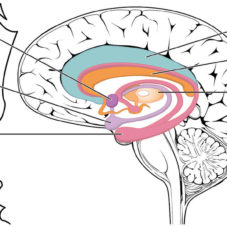Omega-3 fatty acids have risen in popularity over the last few years, and it’s not without reason. The list of Omega-3 fish oil benefits and interesting tidbits about could go on to fill a small library! That said, if you’re wondering how this important nutrient can help you specifically, you’re in the right place.
Table of Contents
The 24 Benefits of Omega-3 Fish Oil
Omega-3 is one of the most important nutrients our body needs to function properly. If you don’t get enough of this essential nutrient in your diet, your health will be affected. Read on for our in-depth write-up on the amazing omega-3 fish oil benefits and how it can help you!
1. This essential fatty acid may help our body function
As the term implies, these types of fatty acids are needed in our diets. They play key roles in many of the processes that keep our bodies functioning at their best. However, we can’t make them on our own. Essential fatty acids, such as omega-3, can only be obtained by consuming them.
Omega-3 is predominantly found in cold-water fish, and to a lesser degree, in plants and nuts. For those who don’t have a fondness for fish, omega-3 is also available as supplements. Check out our Ultra Pure Omega-3 Fish Oil Capsules with 2250mg Omega-3, 1224mg EPA, and 816mg DHA per serving.
2. It balances the omega-3 to omega-6 ratio
The majority of health agencies have recognized the benefits of omega-3 fish oil and advise the steady inclusion of omega-3 into diets. These recommendations are especially advised for the western diet, where omega-3 is sorely lacking on average. This causes an imbalance in the ratio of omega-6 and omega-3.
These two fatty acid types balance each other out. While omega-6 is pro-inflammatory, omega-3 is anti-inflammatory. It’s therefore important to keep your omega-3 and omega-6 intake equal (1).
3. Omega-3 may have anti-inflammatory properties
This is the most important trait of omega-3 and the reason for many of the health benefits it offers. Omega-3 may significantly reduce inflammatory responses by decreasing the amount of pro-inflammatory cytokines.
Inflammation, especially chronic inflammation, can cause damage to the body and lead to a multitude of severe health issues. By stopping excessive inflammation, omega-3 both protects against and relieves the symptoms of many chronic ailments (2).
4. It may be neuroprotective
Mostly due to omega-3 being anti-inflammatory, it may help protect the nervous system and the brain. It has shown promise at preventing the progression of neuropathy in those with diabetes. It helps limit the damage to nerves that can develop over time. Within the brain, it protects against damage caused by stress and the chemicals released in response to stress.
More importantly, it helps the brain heal. Omega-3 supplementation after traumatic brain injury has been seen to enhance the rate of healing, leading to a decreased risk of long-term damage and a more positive prognosis (3).

5. Omega-3 fish oil benefits may include healthy brain support
Brain cells are home to large amounts of DHA. It’s a building block for brain tissue and needed for new brain cell formation. A deficiency in DHA is linked to smaller amounts of grey matter. This may affect the ability to process and learn new information.
Interestingly, children who had healthy intakes of omega-3 early in life (prenatal and early postnatal stages) were more intelligent and had fewer development problems growing up.
One key Omega-3 fish oil benefit is that it helps the brain heal quicker. This is due to the brain’s dependency on DHA to produce new cells. The abundance of fatty acids help form new cells at a quicker rate and replaces those damaged by injury. In contrast, a deficiency of omega-3 slows down the rate of healing because there isn’t enough DHA to create new brain cells (4).
6. It may help relieve depression
Depression is an extremely common ailment and there are a number of tips available for how to deal with it. But many people would never suspect that something from a fish could be of any help. However, omega-3 has a strong antidepressant effect.
In one 8-week study, patients who received omega-3 supplementation did significantly better than those who received a placebo.
Also, studies involving the effects of omega-3 on childhood depression came to a similar conclusion. The children involved improved so much that some of them were in remission by the end of the study period!
A lack of omega-3 may actually be a contributing factor to the development of depression. There is a noticeable link that indicates that an omega-3 deficiency could increase the chances of experiencing depression symptoms.
7. It may slow down Alzheimer’s disease
Despite years of research and trials, Alzheimer’s disease is still shrouded in mystery. We don’t know why it forms or how to cure it. Even the ability to slow down the disease appears to be out of reach, but it may not be for long.
What we know so far is that ‘amyloid plaque’ may be the main culprit behind Alzheimer’s. The more amyloid plaque there is, the faster the disease seems to progress. Omega-3 supplementation may reduce the amount of amyloid plaque in the brain (5).
In one study in mice, the reduction was as high as 50% (6). Obviously, this isn’t a cure, but it holds the potential of being able to slow the disease down. The effects of omega-3 on Alzheimer’s disease are still being studied and there isn’t much known yet. But the studies currently available indicate that omega-3 may offer a step towards a breakthrough.

8. It may help manage symptoms of Parkinson’s disease
A progressive lack of dopamine production is the hallmark of Parkinson’s disease. Dopamine is the “mood and motivation” hormone. But it’s actually quite important for multiple functions within the brain.
As is the case with Alzheimer’s disease, many aspects of Parkinson’s are still in the realm of the unknown and a cure has yet to be found. But omega-3 has shown the potential to possibly slow down the disease.
The mechanism by which omega-3 helps slow Parkinson’s disease down is by reducing inflammation. The brain experiences a large amount of inflammation with Parkinson’s and this damages the cells responsible for supplying dopamine. By lessening the inflammation, omega-3 protects those cells allowing them to continue to produce dopamine (7, 8, 9).
9. It may help manage ADHD
ADHD may be a product of an omega-3 deficiency during prenatal development. This period requires huge amounts of DHA for the formation of grey matter. That said, individuals with ADHD have smaller amounts of grey amount than those without the disorder.
So, a healthy omega-3 intake may help prevent the appearance of ADHD symptoms. But for those already diagnosed with ADHD, more severe symptoms may present when deficient in omega-3.
A study in 2007 showed that omega-3 supplementation led to an improvement and lessening of the symptoms. Omega-3 doesn’t seem to be able to cure ADHD once it has already formed. But it can provide a helping hand when it comes to managing the disorder (10).
10. It may support a healthy pregnancy
Supplementing with Omega-3 during pregnancy is very important. During pregnancy, women are more susceptible to experiencing an omega-3 deficiency. This is mainly due to high demands of the fetus for brain and nervous system development. But the expecting mother also needs it as well (11).
Omega-3 has the ability to improve blood flow, allowing a steady stream of nutrients and oxygen to reach the uterus. This lowers the chances of experiencing a miscarriage (12).
Omega-3 may also lower the risk preeclampsia, a a condition that can be dangerous for both mother and child. One study found that women with low omega-3 intake were 7 times more likely to develop the condition (13)!
Last but not least, omega-3 fish oil benefits include helping prevent preterm labor. Women with healthy omega-3 levels had longer pregnancies than those without a decent omega-3 intake (14).

11. It may boost fertility
For both men and women, omega-3 can enhance fertility by battling the leading causes of infertility.
In women, polycystic ovary syndrome (PCOS) and endometriosis are often the culprits behind the failure to conceive. Omega-3 appears to be able to help manage both conditions.
PCOS is mainly due to a hormonal imbalance. Affected women have high testosterone and low adiponectin levels. This leads to infrequent or completely absent menstruation. Omega-3 supplementation may help restore testosterone and adiponectin levels to normal, making conception easier to achieve (15).
Endometriosis hinders conception by causing irritation and inflammation that leads to scar tissue forming over time. When this happens around the reproductive organs, the result is usually infertility. By reducing inflammation and the damage it may cause, omega-3 prevents the formation of scar tissue and protects fertility (16).
In men, the leading causes of infertility are low sperm count, low sperm quality, and varicocele. Recent studies have found that omega-3 fatty acids play a large role in the production of sperm. Deficiency may lead to low sperm count and incorrectly shaped sperm. By adding omega-3 into a man’s diet, it can improve sperm production and quality, leading to a higher chance of the little swimmers getting to their intended target (17).
Varicocele is a condition where the vein along the spermatic cord becomes enlarged. While this often isn’t a serious condition, it can cause infertility in some cases because it can lead to sperm cells becoming damaged. Men with the most severe cases of varicocele were omega-3 deficient. On the other hand, men that had a healthy omega-3 intake appeared to have milder varicocele and had retained fertility (18).
12. It may help manage autoimmune diseases
Inflammation plays an essential role in autoimmune disorders and their symptoms. As an anti-inflammatory, omega-3 can help lessen the severity of multiple sclerosis symptoms. Additionally, it may help lower the disease activity of other autoimmune diseases such as lupus and Crohn’s disease.
On average, less medication was prescribed to those who include omega-3 in their diets. This helps cut down on negative side effects typically associated with prescription medications (2).

13. It may help keep skin healthy
Although not the most obvious choice as a beauty product, omega-3 can help manage skin conditions and lead to a healthier-looking complexion. The sun can wreak havoc on our skin. While it can give us a nice tan, too much exposure can also be damaging and lead to skin that looks dull and unhealthy over time.
While wearing sunscreen is the most effective method to avoid sun damage, omega-3 intake can aid in protecting our skin as well. By reducing the inflammatory response of sunburn, it protects skin cells from becoming damaged in the aftermath of a day in the sun (19).
Moreover, omega-3 helps retain skin moisture, which may also help reduce the occurence and severity of psoriasis. This lessens the amount of redness and scaly splotches that happen with bouts of psoriasis. The result of a study showed that 80% of the study participants with psoriasis experienced an improvement in their symptoms after omega-3 supplementation (20).
14. It may manage rheumatoid arthritis symptoms
Omega-3 fish oil has a positive effect for all autoimmune disorders, but it appears to be exceptionally beneficial to those with RA. Over a dozen studies have shown that omega-3 supplementation leads to a reduction in RA symptoms.
One of those studies found that morning stiffness was hindered from progressing in the participants that received omega-3. Meanwhile, the placebo group reported worsening stiffness.
Supplementation was also linked to a fewer number of tender joints. EPA is the omega-3 that is responsible for the relief. And RA patients with higher levels of EPA reported having to use over-the-counter pain medications less frequently.
15. It may prevent osteoporosis
By helping to maintain bone mass, omega-3 can prevent osteoporosis from forming. A study conducted with mice resulted in a higher bone mineral density for the mice who were given omega-3 supplementation. This result is likely due to the ability of omega-3 to help the body absorb calcium. It contributes to bones staying strong, as well as helping them mend after injury.
In addition to having the potential to prevent the condition, another omega-3 fish oil benefit is it may also help reverse bone loss in those already experiencing osteoporosis (21).
16. It may lessen the severity of asthma
Evaluations have observed that patients with asthma tend to have lower omega-3 levels while having relatively high levels of omega-6. The higher omega-6 levels were associated with more severe cases of respiratory distress. This indicates that an imbalance in the omega-6 to omega-3 ratio could be a contributing factor in the severity of asthma.
A review of the available studies shows that omega-3 could have a protective quality when dealing with asthma and keep the attacks mild. Supplementation of omega-3 also led to an improvement in respiratory capacity, which could mean less frequent asthma attacks (22).

17. Minimizing hair loss may be one of omega-3 fish oil’s benefits
In studies involving female pattern hair loss, omega-3 proved to be an effective tool. Not only did omega-3 stop the progression of hair loss, but it also helped the study participants grow back the hair that they had already lost. Hair density was significantly improved over a period of months with omega-3 supplementation. As an added bonus, the participants also reported that their hair felt softer and appeared shinier (23).
18. It may support eye health
Much like with the brain, omega-3 is a building block for the formation of the eyes. DHA is an important component of the retinal photoreceptor membrane. Without DHA, especially during prenatal development, vision can be negatively affected (24). However, omega-3 isn’t important for the eyes solely during development. Omega-3 fish oil benefits include maintaining eye health as well.
One of those benefits is aiding the function of the meibomian glands. These glands produce a protective oil that keeps the eyes from drying out. Occasionally, they can become damaged by inflammation and cause it to malfunction. It produces oil that is too thick or it may not produce enough oil and cause irritatingly dry eyes. Omega-3 protects against the damage from inflammation, allowing these glands to function properly (25).
19. It may even prevent and fight cancer
One of the main factors in the development of cancer is inflammation. Chronic inflammation damages cells over time and if the DNA of the cell gets damaged, the cell can become mutated and cancerous.
So, one of the ways to protect against cancer is by stopping inflammation, which is an area where omega-3 excels. It protects cells by lessening inflammation and preventing the recurring damage that can become dangerous.
A higher intake of omega-6 combined with a lower intake of omega-3 is the perfect situation for inflammation to get severe. An imbalance of the omega-6 to omega-3 ratio is linked to a higher risk of developing cancer and of developing more aggressive forms of cancer (1).
Omega-3 also provides aid in fighting cancer. In combination with standard cancer treatment, omega-3 was seen to enhance the cancer-combating regimen. In a handful of studies, omega-3 supplementation led to a decrease in the size and number of cancerous tumors. The rate of the cancers spreading was slowed down and in some cases, it was stopped completely.

20. It may do wonders for heart health
‘Heart-healthy’ is the perfect term to describe omega-3 fatty acids. The effectiveness that omega-3 has in preventing heart disease is so potent that even the American Heart Association praises it.
When included as a steady part of a diet, omega-3 drastically lowers the risk of cardiovascular disease. It does this by reducing abnormal heartbeat and preventing both blood clot formation and the buildup of plaque in the arteries. Omega-3 also protects blood vessels from being damaged by inflammation, resulting in an overall healthier vascular system.
21. It may lower blood pressure
This attribute is one of the reasons omega-3 is heart-healthy. High blood pressure is one of a couple of factors that can lead to abnormal heartbeats. Omega-3 is highly effective at lowering blood pressure and this has been seen in multiple studies involving patients with hypertension (26).
High blood pressure commonly goes unnoticed and untreated. By having a healthy intake of omega-3, undetected high blood pressure can be stopped before it even becomes serious. This effect of omega-3 appears to be more potent when in combination with lowering omega-6 intake.
22. Omega-3 may lower the risk of diabetes
Omega-3 can lower the risks of developing both Type 1 and Type 2 diabetes. Type 1 typically occurs in children and is often the result of islet autoimmunity. This is where the immune system attacks the pancreatic cells that produce insulin. In a couple of studies, omega-3 was seen to prevent islet autoimmunity and lower the chances of a child forming Type 1 diabetes (27).
Type 2 diabetes has a few causes, but the leading cause is obesity. In combination with exercise, omega-3 can be a helpful weight-loss tool. It regulates appetite, which can prevent overeating and make it easier to shed weight. This can lower the risk of developing obesity-related diabetes (28).

23. It may help improve your lipid profile
The term ‘lipid profile‘ refers to the number of triglycerides, lipoproteins, and cholesterol present in the bloodstream. There are a few different types of lipoproteins: Very Low-Density Lipoprotein (VLDL), Low-Density Lipoprotein (LDL), and High-Density Lipoprotein (HDL). These are created when triglycerides bind with cholesterol. High levels of VLDL and LDL are considered bad because they are linked to cardiovascular issues. HDL is considered good because it keeps VLDL and LDL in check (29).
Omega-3 can change the lipid profile by decreasing the amount of triglycerides present, causing a reduction in VLDL and LDL. It also reduces the presence of apolipoprotein B, which is the protein that binds triglycerides and cholesterol to make VLDL and LDL. Omega-3 only slightly raises the amount of HDL so its main benefit is the reduction of the more trouble-causing lipoproteins (30).
24. Omega-3 may help improve exercise performance
Exercise is an important element in staying healthy. But it can occasionally feel like a daunting chore when we don’t see results right away. While omega-3 isn’t going to make someone physically fit after one workout, it can help you get the most out of your exercise regimen.
A common hindrance to muscle growth is cortisol, which is released during periods of both emotional and physical stress. Omega-3 prevents this hindrance by reducing the amount of cortisol release and by stimulating muscle protein synthesis (31).
Due to improved blood flow, omega-3 also helps prevent fatigue from occurring in the middle of your workout. It helps you exercise longer and not feel wiped out halfway through. Additionally, by providing good blood flow and reducing inflammation, it helps ease the post-exercise soreness known as DOMS, so you can recover from a strenuous workout more quickly (32).
What’s your favorite omega-3 fish oil benefit?
I hope this in-depth article answered your question on how omega-3 can help you. As you’ve learned, omega-3 fish oil benefits are wide-ranging. Eating more fatty fish and/or supplementing with high-quality fish oil will help you reap all these benefits. If you know anyone who would benefit from our Ultra Pure Omega-3 Fish Oil capsules, feel free to share this article with them!






